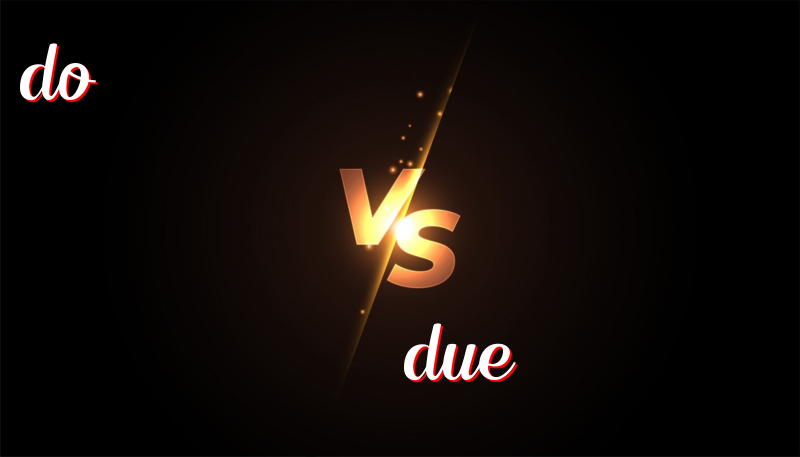Do or Due? Don’t Be Blue!
Difference Between “Do” and “Due”
History of the Words
The word “do” comes from the Old English word “dōn,” which means to make or perform something. It has been used for a long time as a verb that shows action.
The word “due” comes from the Old French word “deu,” which means owed. It entered English in the Middle Ages and is often used to talk about time or things expected.
How to Use “Do”
The word “do” is a verb. We use it to talk about actions, jobs, or jobs that we complete. It is a helping verb in questions and negative sentences.
- I do my homework every day.
- What will you do after school?
- I do not like to eat broccoli.
- She does her chores on the weekend.
- They did a great job on the project.
How to Use “Due”
The word “due” is often used as an adjective. We use it to say when something is expected to happen or when something needs to be paid. It tells us about the time or order of things.
- The library book is due tomorrow.
- The train is due to arrive at noon.
- The baby’s due date is next month.
- The payment is due next week.
- The project is due on Friday.
Trick to Remember the Difference
Think of “do” as an action word, like when you do your work. Think of “due” as a time word, for when something is due to happen or needs to be done.
Summary
“Do” is a verb used for actions, like doing chores or homework. “Due” is often an adjective about time, like when something needs to be finished or paid.

Leave a Reply
You must be logged in to post a comment.